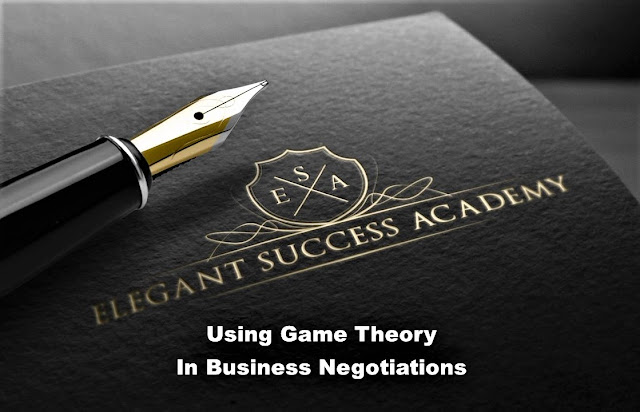Several of our corporate coaching clients
have started to combine game theory with AI tools to optimize the
results of their sales and business negotiations.
The main advantages of this combined approach include:
1. Strategic Planning:
Game
theory helps negotiators to strategically plan their moves and
responses by evaluating various scenarios, potential outcomes and
counter-strategies, whilst AI enables them to create an elegant roadmap
to navigate the complex situations they may encounter.
2. Predicting Behavior:
This
strategic approach allows negotiators to anticipate the actions of the
other parties by analyzing their moves and motivations, leading to more
effective prediction of likely negotiation scenarios, tactics,
strategies and outcomes.
3. Optimal Decision-Making:
Game
theory provides a structured approach to decision-making, whilst AI can
help negotiators to identify the best course of action that maximizes
their own outcomes while accounting for the interests of others.
Despite
these highly attractive advantages, there are a few areas in which the
use of game theory may be of limited use… or even downright dangerous!
As Daniel Kahneman said:
"Negotiations often involve emotions and cognitive biases that can challenge the assumption of rationality in game theory."
We caution our corporate negotiation coaching clients to be especially careful in the following areas:
1. Assumption of Rationality:
Most
game theories assume that the parties involved act rationally, which
may often not hold true in negotiations influenced by emotions,
psychology, interpersonal dynamics or intercultural differences.
2. Incomplete Information:
Game
theory models and AI software tools typically require complete and
accurate information about the players, the context, the available
strategies and possible outcomes based on historical data. In real life
negotiations much of this information may not be easily available.
Furthermore, it may be unreliable or subject to manipulation.
3. Complexity and Simplification:
Real-world
negotiations are often much more complex than what game theory models
and AI systems typically capture, requiring negotiators to make
simplifications and assumptions that don’t completely reflect the
nuances, dynamics and contextual influences, as well as the possible
hidden agendas and unconventional tactics of the parties involved in the
situation.
Thus, while game theory and the related AI tools
offer a structured framework for analyzing negotiations, it's important
to recognize their limitations and to integrate them with other
approaches that consider human behavior and emotions, as well as
psychological, organizational and intercultural factors.
By
blending game theory and the use of AI tools with a deep understanding
of negotiation dynamics, negotiators can enhance their decision-making
and achieve more successful outcomes.
